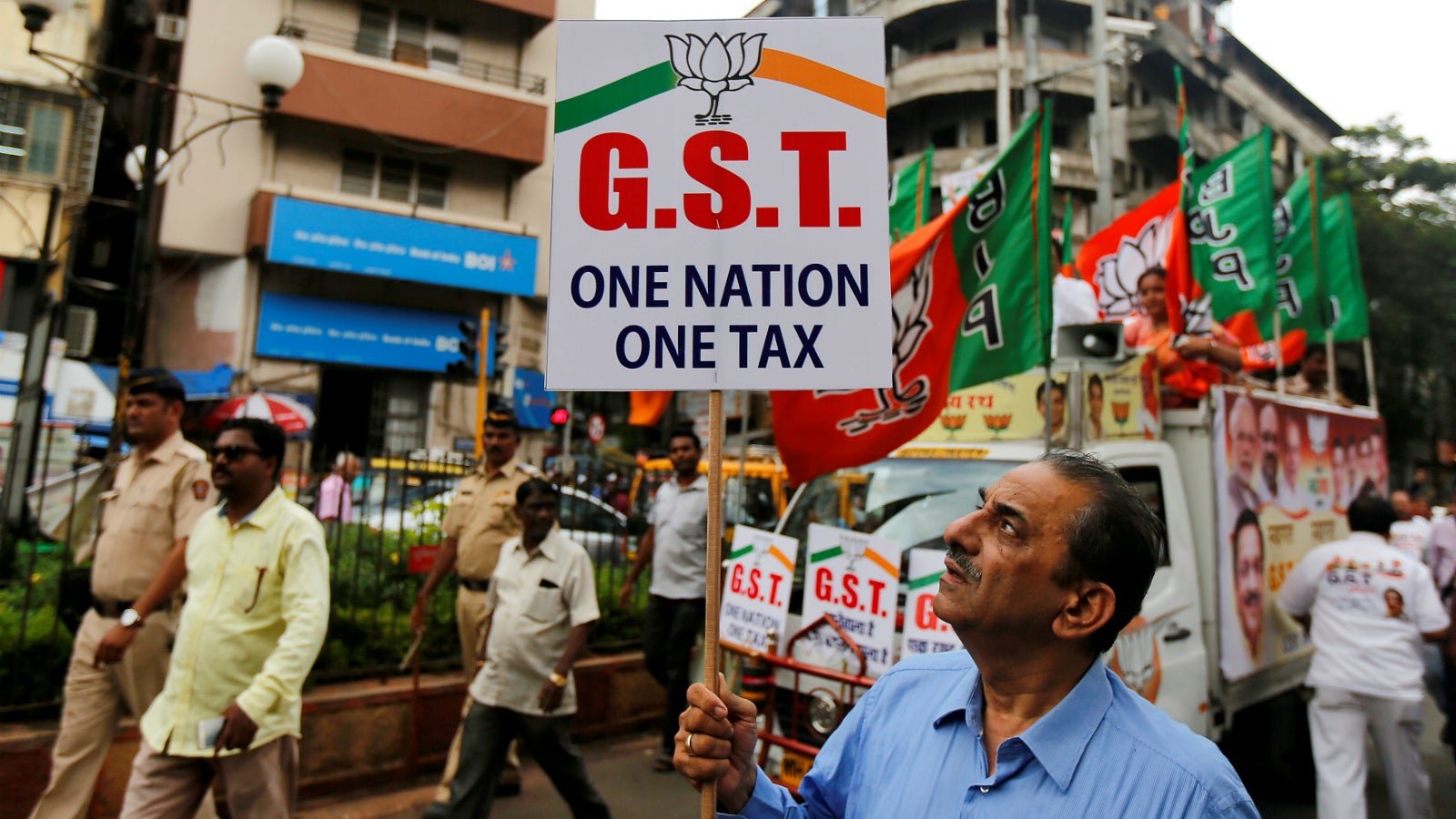A spate of recent frauds has taken the sheen off India’s new tax regime
India’s goods and services tax (GST) may not be as “good and simple” as it was purported to be.


India’s goods and services tax (GST) may not be as “good and simple” as it was purported to be.
A spate of frauds discovered recently has turned the spotlight on how businesses are exploiting the loopholes in the two-year-old taxation system.
The latest episode was reported last month when the top management of fruit juice maker Manpasand Beverages (MBL) was arrested for an alleged fraud of Rs40 crore ($5.8 million).
The alleged crime
On May 23, Abhishek Singh, managing director of MBL, his brother Harshvardhan Singh, and chief financial officer, Paresh Thakkar, were arrested following a raid by GST officials at the company’s headquarters in Vadodara in the western state of Gujarat.
The firm, which markets X-Cite, Mango Sip, Siznal, and Aprilla fruit juices, among others, allegedly carried out fictitious transactions with dummy entities to avail input tax credit.
This provision allows firms to reduce the levy on the sale of products if they have already made payments for the inputs purchased. MBL is accused of evading Rs40 crore in taxes in financial year 2019 by faking input purchases from 30 fictitious entities.
It is difficult for auditors to unearth such a long trail as there are no records available with the registrar of companies (RoC).
However, MBL’s is not a one-off case.
Other instances
In March this year, the Hyderabad central GST commissionerate discovered an alleged tax fraud of Rs224 crore—along with fake invoices of Rs1,289 crore—carried out by a group of eight iron & steel product-trading firms. Of these, only a few names were made public: VS Ferrous Enterprises, Bharani Commodities, Infinity and Hindustan Steels.
Investigators have linked these entities with Hyderabad-based Sujana group of companies. Some of them used illegal input-tax credit and GST returns as collateral to raise loans worth Rs700 crore from scheduled banks.
Apart from these, many instances of GST fraud by individuals have also come to light.
In February this year, a Bihar resident was accused of claiming fraudulent tax benefits to the tune of Rs800 crore. This is being dubbed as one of the biggest such cases.
A resident of Vadodara has, meanwhile, been identified as the mastermind of a scam involving fake invoices through which he claimed input-tax credit of Rs177.64 crore in January.
Fault lines
Introduced with much fanfare in July 2017, GST was touted as a simple, nation-wide taxation system to replace the various indirect levies. The new tax structure was aimed at higher transparency, and timely compliance.
However, these cases of fraud prove that even GST can be manipulated.
The GST council is now leveraging data analytics to detect anomalies in filings, besides gathering information on value of products, tax rates, tax amounts, sales and purchase details.